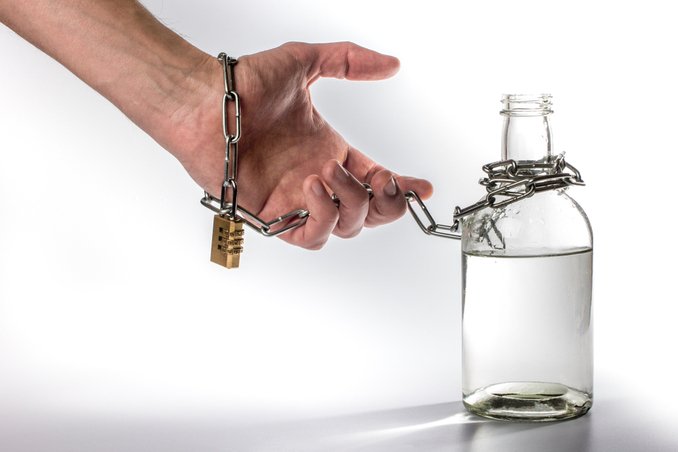Can Alcohol be Habit Forming?
Alcohol is the most commonly used substance in America today, but what you might not realize is that functional alcoholics do not show their addiction. So is alcohol addictive? Around 17.6 million people in the United States suffer from alcohol dependence or chronic alcohol abuse.
This is a huge number of people that suffer from unhealthy drinking habits and most of these develop into alcoholism.
If you have tried helping an alcoholic you will know all too well this is extremely difficult, and that alcohol is addictive. Finding a way to help can be challenging, and if you are struggling yourself it may be even worse. Functional alcoholics drink for different reasons, so there is no one simple solution.
Despite this, treatment that works for one may not work for another. Ultimately, both physical and psychological factors must be addressed in order to overcome addiction.

Functional Alcoholics in Society
Many people struggle with problem drinking or heavy drinking. If this is the case for you, then you may be one of the functional alcoholics that exist in society. If you are able to go about your day but have constant cravings for alcohol, this might be you.
This term is officially defined as having a dependence on, tolerance to, or intense cravings for alcohol, but still maintaining a job, going to school, and have apparently healthy relationships.
You may even excel in these areas. Although you might appear to have it all together, you also most likely have problems with drinking. Society tells us that if we do a good job in the areas of our life that matter, we can do whatever we please otherwise.
Functional alcoholics are typically in denial that there is a problem, and until your health begins to suffer, you will not make a change. This might include issues at work, or with your close relationships. You may also finally decide to get help once you reach an emotional tipping point regarding how your situation has become.
The DSM-5 and Defining Alcohol Use Disorders
While functional alcoholics often do not meet the full DSM-5 definition for alcohol use disorder, they will still show some signs of having a problem with drinking too much. The DSM-5 are 11 criteria of addiction. They include:
- Hazardous use: You have used the substance in ways that are dangerous to yourself or others.
- Social or interpersonal problems related to use: Substance use has caused relationship problems or conflicts with others.
- Neglected major roles to use: You have failed to meet your responsibilities at work, school, or home because of substance use.
- Withdrawal: When you stop using the substance, you experience withdrawal symptoms.
- Tolerance: You have built up a tolerance to the substance so that you have to use more to get the same effect.
- Used larger amounts/longer: You have started to use larger amounts or use the substance for longer amounts of time.
- Repeated attempts to control the use or quit: You’ve tried to cut back or quit entirely, but haven’t been successful.
- Much time spent using: You spend a lot of your time using the substance.
- Physical or psychological problems related to use: Your substance use has led to physical health problems, such as liver damage or lung cancer, or psychological issues, such as depression or anxiety.
- Activities are given up to use: You have skipped activities or stopped doing activities you once enjoyed in order to use the substance.
- Craving: You have experienced cravings for the substance.

The Signs of Functional Alcoholics
Along with the criteria above, there are signs of functional alcoholics which may be different. Simply because you do not meet the 11 criteria, does not mean that you are not addicted or suffering from an alcohol use disorder.
If you have difficulty controlling how much alcohol you consume at one time, or state that you will stop drinking at one point, and do not. You may also obsess about your next drink as functional alcoholics. This might include focusing on an outing to the bar, a social event with alcohol, or dinner with wine or beer.
When you act drastically differently as drunk compared to sober this is also a sign of functional alcoholics. Especially when experiencing blackouts regularly. Finally, using alcohol as a reward or stress reliever, avoiding eating, or choosing to drink instead of eating are serious signs of functional alcoholics.
Is Alcohol Addictive: Functional Alcoholics Do Not Fit Stereotypes
It is essential to understand that functional alcoholics do not fit stereotypes about alcohol use disorders. You or your loved ones may not realize that there is a problem.
Especially because you continue to fulfill career and social obligations. Whether you are intoxicated at the time or your drink too much later, you still look normal. Your friends may even joke about your high tolerance for alcohol during social situations. This does not make it safe or healthy.
Mental Illness and Functional Alcoholics
If you suffer from mental illness you may use alcohol to self-soothe or self-medicate. If you suffer as functional alcoholics along with a mental health disorder, these are considered co-occurring disorders. In this case, it is essential that you obtain dual diagnosis treatment if you wish to get healthy.
Common co-occurring disorders with alcoholism include:
- Anxiety Disorders: This is the most common category, with approximately 40 million adults 18 and older suffering from anxiety. Different anxiety disorders include:
- Generalized anxiety disorder, known as GAD
- Social anxiety
- Specific phobias
- Panic disorder
- Obsessive-compulsive disorder, known as OCD
- Post-traumatic stress disorder, known as PTSD
- Mood Disorders, such as bipolar disorder
- Psychotic Disorders, such as schizophrenia
- Dementia
- Eating disorders, such as bulimia and anorexia
When to Get Treatment as Functional Alcoholics
Most often those who fit the depiction of functional alcoholics will continue going to work school, and family events. When these events begin to be skipped because of a hangover or because you would rather drink, you may begin to realize you need treatment. Other reasons you may decide to get treatment include:
- Changes in attitude or mood
- Loss of focus or memory
- Cognitive decline
- Shakiness or tremors when not using alcohol, known as withdrawal symptoms
- Paranoia or anxiety
- Insomnia
- Physical health declines
- Missing deadlines at work or school
- Calling in sick or skipping social events continuously more often
- Drinking at inappropriate times such as work or school

Helping Functional Alcoholics
Most often functional alcoholics are in denial. This means you may not be able to admit you have a problem. If your family and friends notice a problem with you, they may use intervention as a platform to express their concerns. Despite this, this can be difficult to receive properly.
It is important to note that if you are a friend or loved one of a functional alcoholic, they may seem to have their life together. Over time though, their abuse will catch up with them. The best way to ensure that the long-term effects of alcoholism don’t take hold is to get help.
At Find Addiction Rehabs we offer the chance to learn about the variety of options available. Whether that is dual diagnosis treatment, inpatient, or outpatient programs. We have the information you need to get healthy and get your life back on track.

